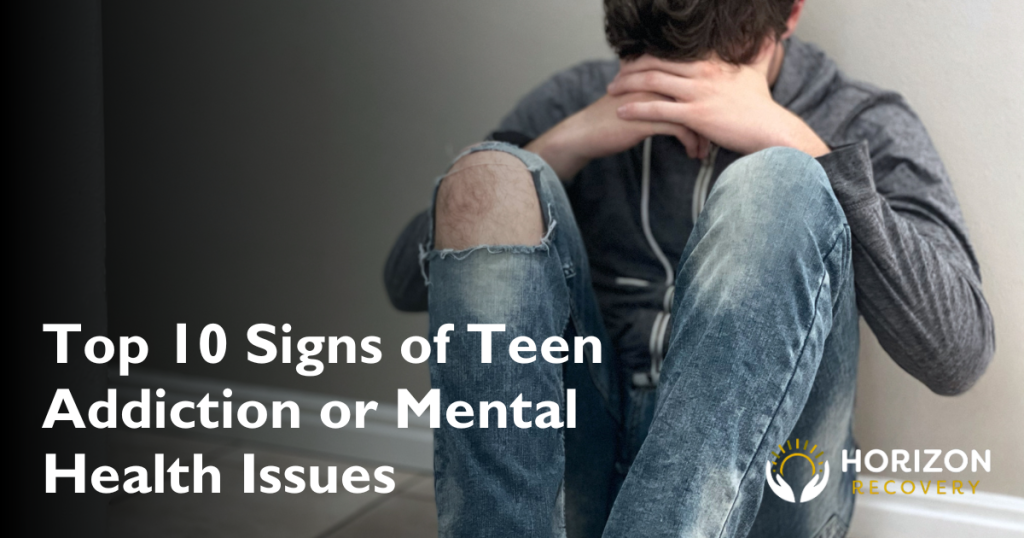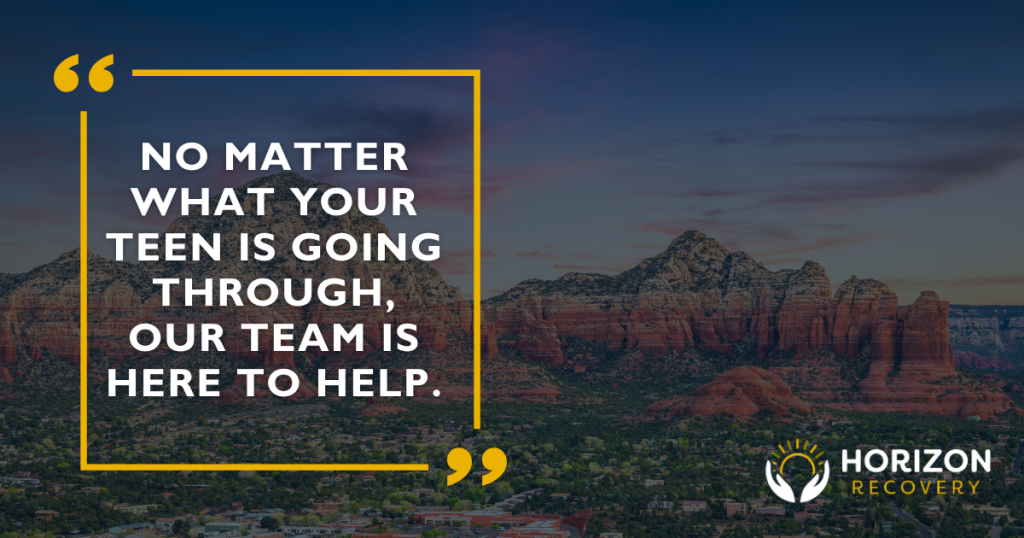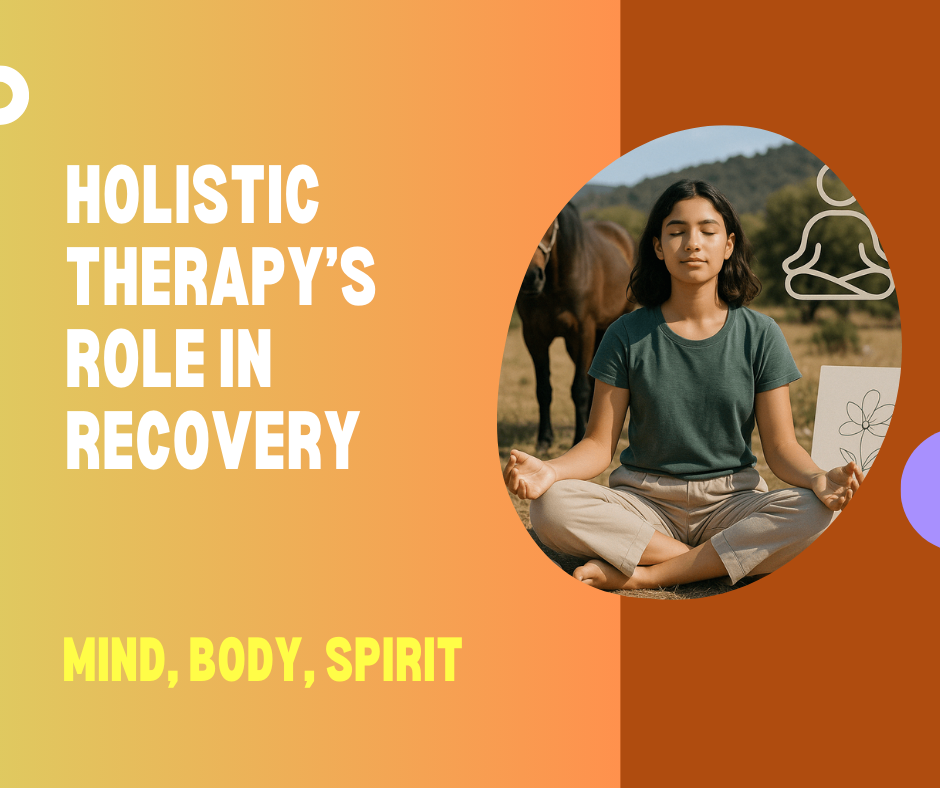10 Signs Your Teen May Be Struggling With Addiction

The teenage years are a time of growth, identity formation, and increasing independence—but they can also be filled with challenges, stress, and risk-taking behaviors. While some behavioral changes are normal, certain warning signs may indicate a deeper issue, such as substance use or addiction.
According to the National Institute on Drug Abuse (NIDA), nearly 1 in 3 high school seniors report using illicit substances in the past year. (NIDA) However, many parents don’t recognize the early signs until their teen is already in crisis.
At Horizon Recovery, we specialize in adolescent addiction and mental health treatment. Our team, led by Brian Carlisle, RN, FNP-C, MSLE, a first responder and healthcare leader, and Dr. Mona Amini, MD, MBA, a board-certified psychiatrist, provides evidence-based therapies in a compassionate, family-centered environment.
Below are 10 warning signs that may indicate your teen is struggling with addiction—along with expert-backed advice on what to do next.

1. Extreme Mood Swings
- Sudden, unexplained emotional outbursts
- Frequent irritability or defensiveness
- Periods of unusual euphoria followed by depression
Dr. Mona Amini, MD, MBA, explains:
“Substance use alters brain chemistry, leading to mood instability, increased aggression, or heightened emotional reactivity. If your teen’s emotions seem unusually intense or unpredictable, it’s worth exploring the underlying cause.”
What You Can Do:
- Keep communication open—ask questions in a non-judgmental way.
- If mood swings persist, consider a mental health evaluation.
2. Declining Academic Performance
- Sudden drop in grades
- Skipping classes or missing school
- Loss of interest in studying or completing homework
Fact: According to JAMA Psychiatry, teens with substance use disorders are 40% more likely to drop out of school. (JAMA Psychiatry)
What You Can Do:
- Ask open-ended questions: “Is anything making school harder for you?”
- Work with teachers or school counselors to understand the issue.
3. Social Withdrawal or Secretive Behavior
- Avoiding family and longtime friends
- Spending more time alone or with a new, secretive friend group
- Becoming defensive when asked about whereabouts
What You Can Do:
- Express concern without accusation.
- Suggest positive social outlets (clubs, sports, hobbies).
4. Disrupted Sleep Patterns
- Staying up late, excessive daytime napping
- Frequent nightmares or restless sleep
- Insomnia or difficulty waking up
Fact: Teens who use substances are 2.5 times more likely to develop sleep disorders. (CDC)
What You Can Do:
- Encourage consistent sleep routines.
- Ask if they feel stressed or anxious.
5. Physical Symptoms Without a Clear Cause
- Frequent headaches, stomach aches, or nausea
- Sudden weight loss or gain
- Bloodshot eyes, slurred speech, or unsteady movements
What You Can Do:
- Observe patterns. Are these symptoms occurring after social events?
- Consult a pediatrician or addiction specialist if symptoms persist.
6. Changes in Eating Habits
- Sudden increase or decrease in appetite
- Binge eating or skipping meals
- Hoarding food or excessive cravings
What You Can Do:
- Ask in a gentle, non-confrontational way:
“I’ve noticed you’re not eating as much. Is something on your mind?” - If drastic changes persist, seek medical or nutritional guidance.
7. Finding Evidence of Substance Use
- Discovering drug paraphernalia (rolling papers, vapes, empty pill bottles, burnt spoons, lighters, etc.)
- Smelling alcohol or marijuana on clothing
- Unexplained missing money or valuables
What You Can Do:
- Avoid immediate confrontation. Instead, express concern calmly.
- Provide factual information about substance risks.
- If necessary, seek professional intervention.
Need help? Call the SAMHSA National Helpline: 1-800-662-HELP (SAMHSA)
8. Secretive or Isolated Behavior
- Locking their bedroom door for long periods
- Being defensive about phone activity or social media use
- Lying about whereabouts or staying out unusually late
What You Can Do:
- Avoid invading privacy but set clear expectations about honesty.
- Monitor who they’re spending time with.
9. Neglect of Personal Hygiene
- Not showering, brushing teeth, or changing clothes regularly
- Messy, unkempt appearance when they used to care about grooming
- Unusual body odor (alcohol, marijuana, chemicals)
What You Can Do:
- Frame conversations around self-care, not blame.
- If this is accompanied by withdrawal or mood changes, seek professional help.
10. Frequent Anger or Irritability
- Unexplained aggression or hostility
- Sudden outbursts over minor issues
- Physical altercations or defiance toward authority
What You Can Do:
- Stay calm during confrontations to avoid escalating tension.
- Remind them: “I’m here to support you, not punish you.”
- Consider therapy or anger management programs.

When to Seek Professional Help
If multiple warning signs persist, it’s time to seek expert guidance.
National Resources for Parents & Teens:
SAMHSA National Helpline: 1-800-662-HELP (24/7 confidential support)
National Alliance on Mental Illness (NAMI): 1-800-950-NAMI
Why Horizon Recovery?
At Horizon Recovery, we offer:
Accredited, evidence-based addiction treatment.
Expert therapy from board-certified professionals.
Family-centered support for long-term healing.
Contact us today to learn how we can help your teen recover and thrive.
More posts like this
.svg)
Guiding your teen’s path to mental clarity, sobriety, and a hopeful future.
For more information or to schedule a visit, please reach out to us today. Our empathetic and caring team is here to support you every step of the way.
.svg)
.avif)
.svg)
.svg)
.jpg)




